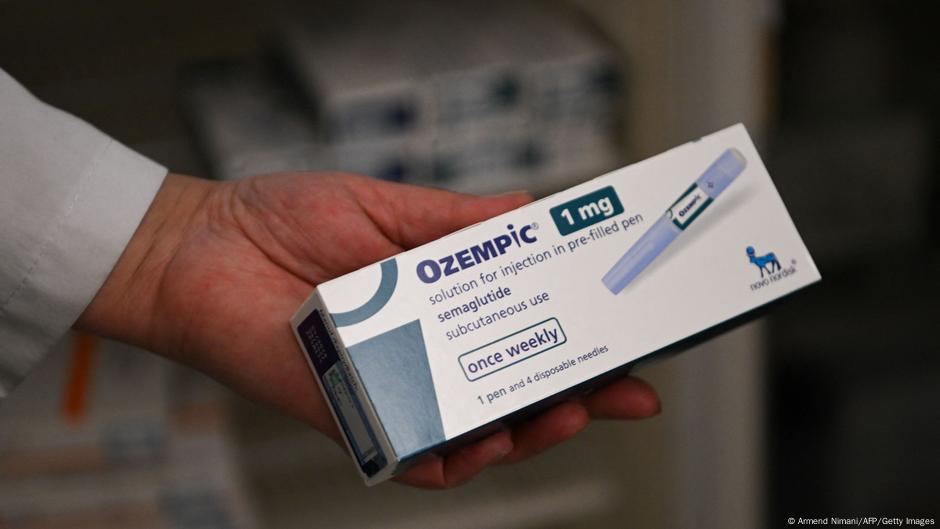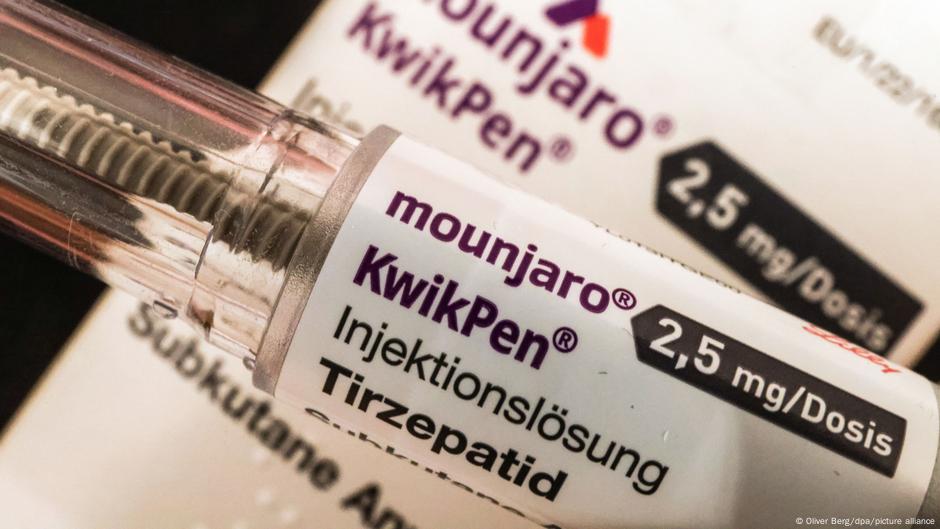Fake medicine is a global health crisis

With increasing demand for widely used medicines, specialists and trade organizations worry that authorities might struggle to match the rapid tactics of fake drug producers.
"A physician merely records the prescription. They aren’t concerned about where the patient purchases the medication," stated Saifuddin Ahmed, a public health professional and epidemiologist at Johns Hopkins University in the United States.
"It is essential for a healthcare professional to be involved. Simply relying on [regulators] is insufficient," Ahmed stated.
The difficulty is most evident when considering the high demand for items such as Wegovy and Zepbound.
They include active ingredients known as semaglutide or tirzepatide, initially developed for managing type 2 diabetes. However, these medications were discovered to cause an unexpected side effect that led to substantial, sustained weight loss .
The desire for weight loss increased among individuals, leading to a scarcity of products. Counterfeits have stepped in to fill this void.
Counterfeit medications pose a worldwide challenge.
Illegal drug production remains a significant worldwide issue. According to the World Health Organization (WHO), one out of every ten medications available may be counterfeit, offering no assurance of therapeutic value.
Although most cases occur in lower- and middle-income countries, particularly in certain regions of Africa and Asia, approximately 1% of individuals in high-income countries still acquire medicine through unofficial channels.
In certain instances, these medications might not produce any result. In other situations, though, components found in the counterfeit could cause unintended effects. adverse reactions or cause additional health issues.
"Obtaining medication through unauthorized, unapproved channels online may put individuals at risk of receiving hazardous items that haven’t been properly assessed or authorized, or which fail to satisfy required quality criteria," stated the U.S. regulatory body, the Food and Drug Administration (FDA), in 2023, as it released its initial alerts regarding this issue.
In 2024, the World Health Organization released a worldwide alert regarding counterfeit versions of Ozempic. flooding the black market.
In July 2025, according to information released by the UK National Pharmacy Association, one out of every five British people reported trying to get weight loss medications within the past year.
It cautioned that the strong demand for these medications could lead individuals to "turn to unauthorized internet sellers rather than licensed drugstores."

In which locations do individuals purchase fake medication?
Illicit medications are available through internet-based pharmacies, cross-border purchasing of drugs, and networks run by organized crime.
These virtual platforms are not e-commerce outlets belonging to well-known drugstores, but rather websites that appear to provide medications at significantly reduced prices compared to standard rates.
Online, the medications might appear similar to authentic medicines, but upon delivery, they frequently contain typos on the packaging or wrong lists of ingredients.
However, it isn't just counterfeit medications or sugar pills. Authorities have expressed worries regarding compounding, which involves combining separately approved medicines to create unregulated "compound" formulations tailored for specific patients.
In certain parts of the globe, such as the United States, certified pharmacists are permitted to prepare medications; however, this process remains subject to fewer regulations compared to the rigorous approval procedures that pharmaceutical companies must go through before launching their drugs.
For instance, when the FDA briefly permitted the preparation of weight-loss medications due to a supply issue, certain pharmacists opted for semaglutide salts—materials that have not been authorized by regulatory agencies—in place of genuine semaglutide. This resulted in cases where individuals experienced adverse reactions.
It wasn't only certified compounding pharmacies that were preparing these items in the U.S. Ahmed stated, "this occurs in places such as gyms and spas."
The FDA has recently halted the approval of compounded forms of these weight-loss medications, yet it remains worried that unauthorized online pharmacies continue to offer low-quality items.
Increasing visibility regarding counterfeit medications Spreading knowledge about falsified pharmaceuticals Promoting understanding of fraudulent medicinal products Highlighting the issue of imitation medicines Educating people on deceptive drug substances Bringing attention to substandard medication practices Informing the public about illicit pharmaceutical items Emphasizing the dangers of false medical treatments Creating consciousness around fake pharmaceutical goods Advocating for recognition of misleading drug products
In response to worries that customers might look for hazardous items through unauthorized channels, the FDA runs an initiative known as BeSafeRx, which offers advice to help people recognize authentic medications.
Within the European Union, medicine safety requirements are enforced, which involve uniform labeling procedures. According to a statement shared with [source], the European Medicines Agency stated, "Patients must only purchase from online vendors authorized by the regulatory bodies within each EU country to minimize the chance of obtaining counterfeit or low-quality medications."
The European Police Office, tasked with overseeing law enforcement efforts against drug-related crimes within member countries, has conducted routine operations throughout the region in partnership with U.S. and Colombian authorities. During an operation in 2023, over 1,284 individuals faced charges connected to the distribution of fake medications, improperly used drugs, and performance-enhancing substances.
In addition to community education programs and regulatory efforts, Ahmed emphasized that the main strategy was to enhance communication between patients and their healthcare providers.
Ahmed leads the BESAFE program at Johns Hopkins University, which examines dangers and solutions aimed at stopping the use of poor-quality and fake medicines.
Studies conducted by BESAFE reveal that in the U.S. and South Africa, people have limited knowledge about where to securely purchase medications and how to identify fake products or report negative reactions. He mentioned that fostering confidence among patients, healthcare professionals, and authorities could reduce the dangers associated with buying counterfeit or unapproved drugs.
Edited by Zulfikar Abbany
Author: Matthew Ward Agius

Posting Komentar untuk "Fake medicine is a global health crisis"
Please Leave a wise comment, Thank you